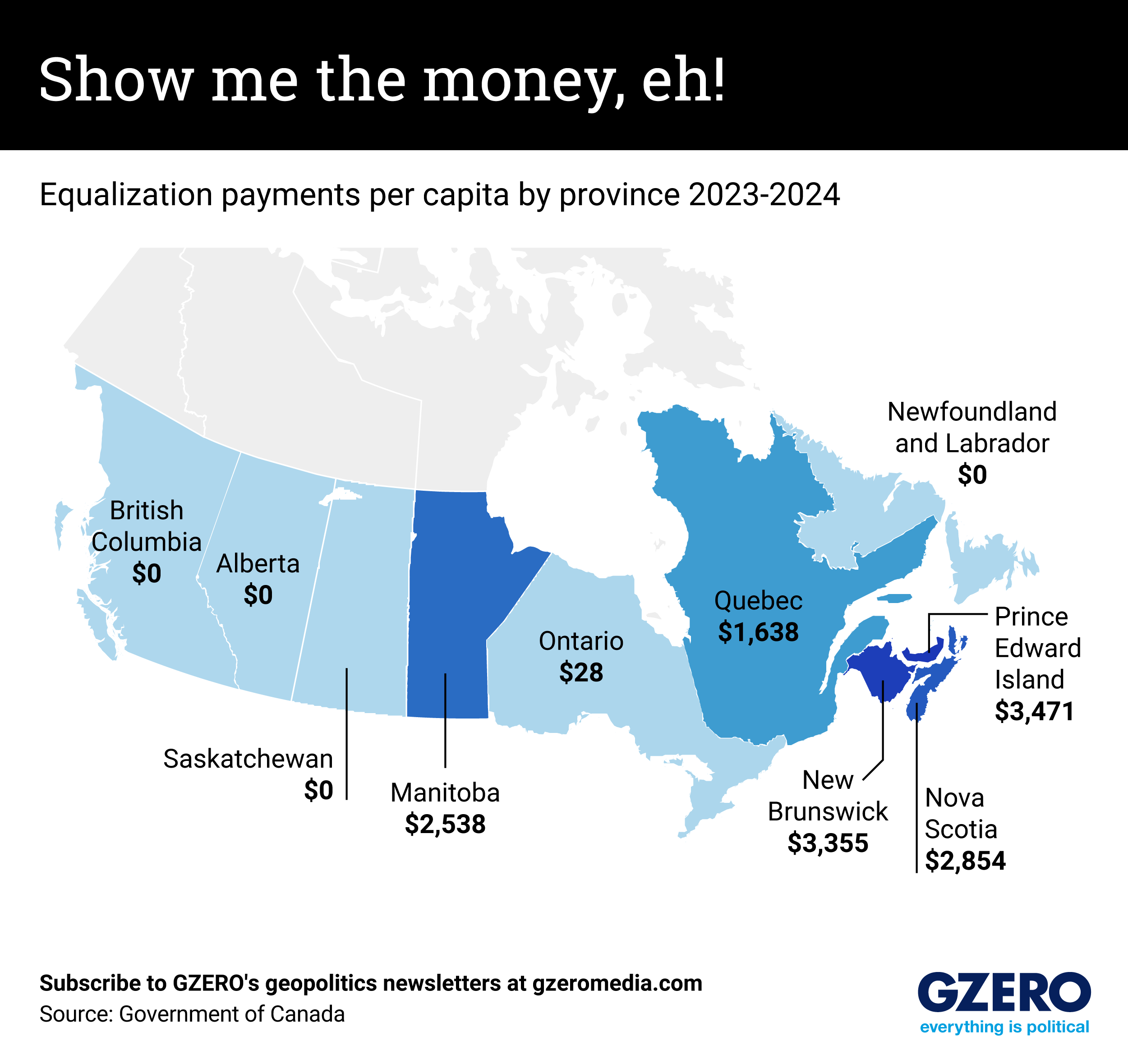Canada has a federal spending program known as equalization, which tries to address fiscal disparities across its 10 provinces. It supports provinces with lower-than-average fiscal capacity or weaker economies to help ensure they can provide comparable public services. Every province has received benefits via the program since its inception in the late 1950s, but that doesn't mean each province qualifies for equalization payments every year.
Financed via the Canadian government's general revenues, which are largely derived from federal taxation, equalization has often been a point of contention. Danielle Smith, premier of Alberta, has called it an unfair “gravy train,” and Albertans voted to ax equalization in a 2021 referendum, though no single province has the power to cancel the program on its own. Four provinces are not receiving equalization payments in 2023-2024, and Alberta – Canada’s fourth most populous province – is one of them.
Support for equalization remains strong overall: A 2023 survey from the Environics Institute found that 73% of Canadians support the equalization program. And, despite not getting equalization this year, the majority of Albertans (64%) support the program. In fact, the survey showed that support for equalization in Alberta has jumped 13 percentage points since 2019.
